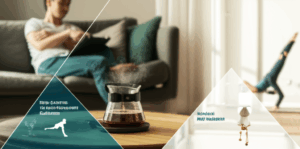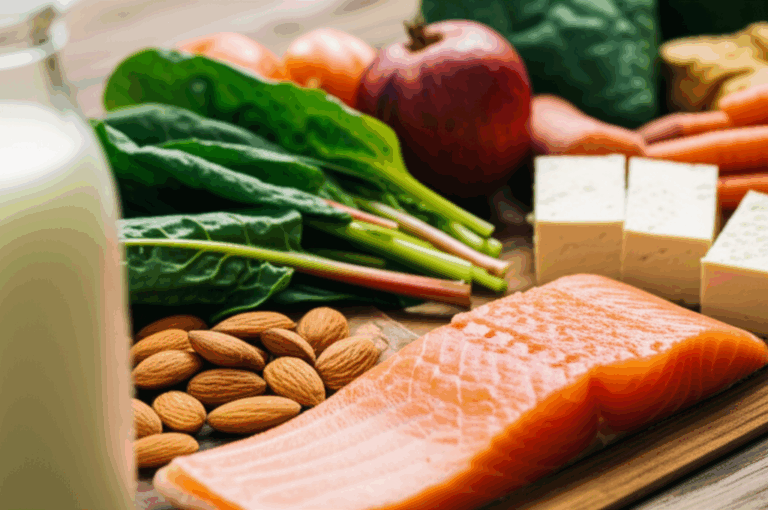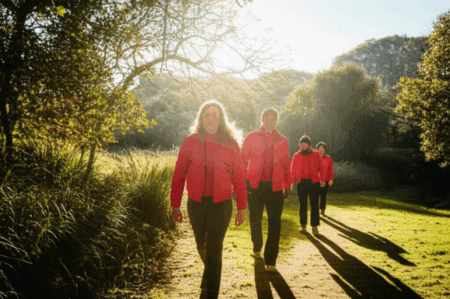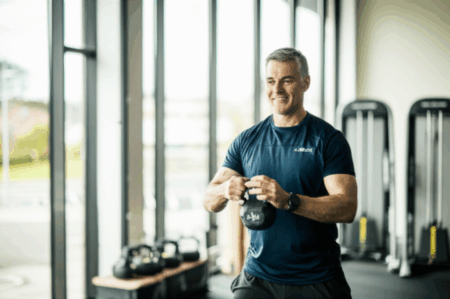Our bones are the unsung heroes of our bodies, providing structure, protecting organs, and enabling movement. Far from static, bone is living, growing tissue that constantly breaks down and rebuilds itself. However, as we age, the rate of bone loss can outpace formation, leading to conditions like osteoporosis, where bones become fragile and prone to fractures. The good news is that extensive research points to several key strategies—primarily through diet, exercise, and lifestyle choices—that can significantly help maintain and improve bone strength throughout life.
The Importance of Peak Bone Mass
Building strong bones during childhood, adolescence, and early adulthood is crucial. Most people achieve their peak bone mass between the ages of 18 and 25, with some studies suggesting up to age 30. The more bone mass you accumulate during these formative years, the greater your “bone bank” will be, offering a buffer against bone loss later in life.
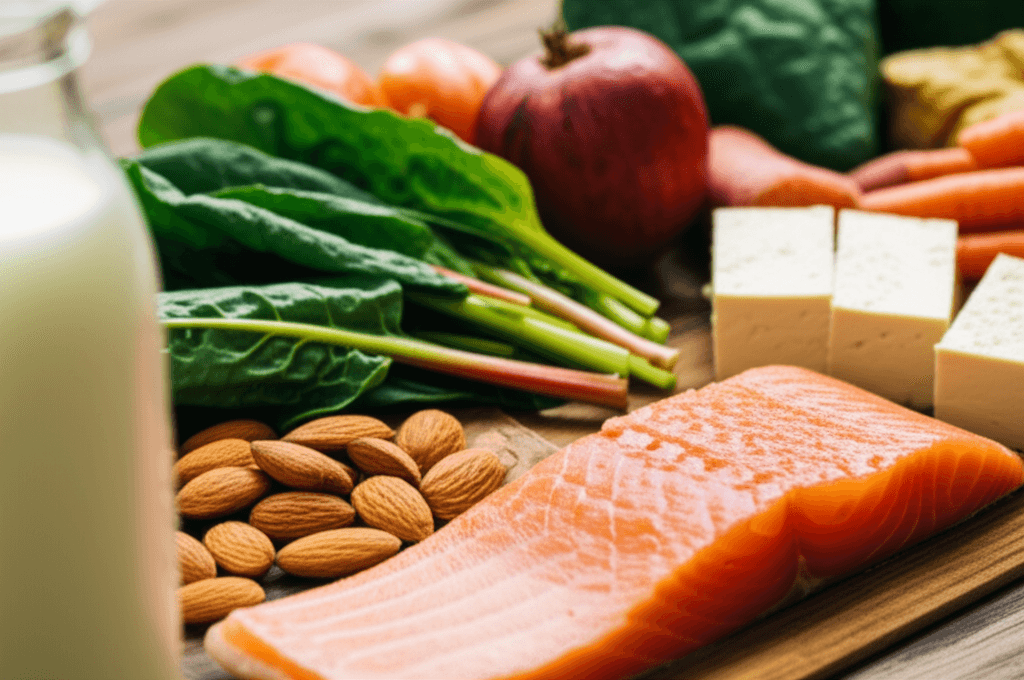
Fueling Your Framework: Essential Nutrients for Bone Health
A well-balanced diet rich in specific vitamins and minerals is foundational for strong bones.
Calcium: The Primary Building Block
Calcium is the most abundant mineral in the human body and is indispensable for bone density and strength. If your dietary intake of calcium is insufficient, your body will draw calcium from your bones to support other vital functions, leading to weakening over time.
- Recommended Intake: Adults generally need 1,000 to 1,200 milligrams (mg) of calcium daily, with older adults (women over 50, men over 70) typically requiring the higher end of this range.
- Dietary Sources: Excellent sources include dairy products (milk, yogurt, cheese), leafy green vegetables (kale, spinach, collard greens), fortified foods (plant-based milks, juices, cereals), and certain fish like salmon and sardines with bones.
- Supplementation: While food sources are preferred, calcium supplements can be considered if dietary intake is inadequate. It’s recommended to take calcium supplements in divided doses, typically no more than 500 mg at a time, for better absorption.
Vitamin D: Calcium’s Essential Partner
Vitamin D is critical because it helps the body absorb calcium efficiently from the intestines and deposit it into the bones. Without adequate Vitamin D, even a high calcium intake may not prevent bone thinning.
- Recommended Intake: Adults typically need 600 to 800 International Units (IU) of Vitamin D daily, though some experts suggest higher levels (1,000 to 2,000 IU or even more, based on individual needs and blood levels).
- Sources: Sunlight exposure is a natural way for the body to produce Vitamin D, but dietary sources like oily fish (salmon, trout, tuna, mackerel) and fortified foods are also important. Supplements (Vitamin D3) are often necessary to reach optimal levels.
Beyond Calcium and Vitamin D: Other Key Players
While calcium and Vitamin D are paramount, several other nutrients play significant roles in maintaining bone strength:
- Magnesium: This mineral is vital for bone mineralization and density, with deficiencies linked to an increased risk of osteoporosis. Good sources include almonds, cashews, peanuts, leafy greens, and other nuts and seeds. Supplementation of 250-400 mg daily may be beneficial for some.
- Vitamin K: Particularly Vitamin K2, this nutrient helps regulate osteocalcin, a protein involved in bone mineralization, and may improve bone properties that increase strength. Leafy green vegetables like spinach and kale are excellent sources.
- Protein: Often overlooked for bone health, protein is a major component of bone tissue and helps maintain bone density, especially during aging and weight loss. Lean protein sources include eggs, lentils, poultry, lean beef, dairy, fish, tofu, beans, and nuts.
- Other Minerals and Vitamins: Phosphorus, boron, potassium, and Vitamin C also contribute to bone health. A diet rich in fruits, vegetables, and whole grains naturally provides these diverse nutrients.

Building Stronger Bones: The Power of Exercise
Physical activity is another cornerstone of bone health, with research consistently demonstrating its ability to build and maintain bone density. Bones respond to stress by becoming stronger, making certain types of exercise particularly effective.
Weight-Bearing Exercises
These exercises involve working against gravity while on your feet, placing beneficial stress on your bones.
- High-Impact: Activities like jogging, running, dancing, jumping rope, hiking, and climbing stairs are excellent for building bone density, especially during peak bone-building years.
- Low-Impact: If high-impact activities are not suitable (e.g., due to severe osteoporosis or joint issues), low-impact options like brisk walking, using elliptical machines, or stair-step machines still offer bone-strengthening benefits.
Resistance and Strength Training
Muscle-strengthening exercises involve moving your body or weights against resistance, which pulls on the bones and stimulates bone growth.
- Examples: Lifting free weights, using resistance bands, working with weight machines, and bodyweight exercises (e.g., push-ups, squats, lunges) are all effective.
- Benefits: Strength training not only builds bone density but also improves muscle mass, strength, balance, and coordination, all of which are crucial for preventing falls—a major cause of fractures in older adults.
- Frequency: Aim for muscle-strengthening activities at least two days a week, working all major muscle groups.
Note: While excellent for cardiovascular health, activities like swimming and cycling are not weight-bearing and therefore do not provide the same bone-strengthening benefits.

Smart Choices for Lifelong Bone Health
Beyond diet and exercise, several lifestyle factors significantly impact bone health.
- Maintain a Healthy Body Weight: Being underweight is a risk factor for bone loss and fractures. Conversely, while often associated with other health issues, excess weight has also been linked to an increased risk of fractures in certain areas like the arm and wrist.
- Avoid Smoking: Research consistently shows that tobacco use, especially smoking, weakens bones and increases the risk of osteoporosis.
- Limit Alcohol Intake: Excessive alcohol consumption (more than one drink a day for women or two for men) can accelerate bone loss and increase the risk of osteoporosis.
- Prevent Falls: Especially for older adults, taking steps to prevent falls is vital to avoid fractures. This includes making home environments safer (e.g., good lighting, removing tripping hazards) and potentially incorporating balance-focused exercises like Tai Chi.
- Be Mindful of Medications: Discuss any long-term medications with your doctor, as some can increase the risk of osteoporosis.

Taking Control of Your Bone Health
While genetics play a role in bone strength, lifestyle choices such as diet and physical activity are powerful modifiable factors. It’s never too late to adopt habits that promote bone health, though the benefits are most significant when established early in life.
Consult with your healthcare provider to discuss your individual risk factors for osteoporosis, appropriate calcium and Vitamin D intake levels, and a safe, effective exercise regimen tailored to your needs. By making informed choices, you can actively contribute to maintaining strong, healthy bones for years to come.



